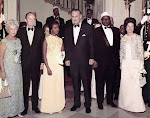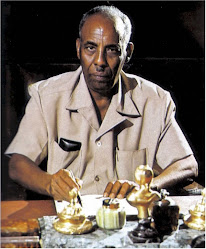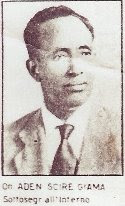Farah Abdulsamed was tucking into two symbols of Somalia’s nomadic and colonial heritage – camel steak and spaghetti – when a more pressing symbol of its chaotic present put an abrupt stop to his lunch.
Two suicide bombers struck in quick succession. “I was the closest person; I barely escaped,” says Mr Abdulsamed, who scrambled to mount a wall as blood and body parts spattered. A guard was killed in the attack.
Shocking though this month’s suicide bombings were, attacks such as these are almost all al-Shabaab militants have left in Somalia, which since its collapse into civil war in 1991 has become synonymous with global terrorism and piracy. Over the past 20 years, billions have been spent on security and aid in an effort to stabilise the region.
Now the al-Qaeda-linked jihadists have lost both turf and wherewithal – abandoning Mogadishu last year and, two months ago, their financial hub in Kismayo port. “Shabaab’s really in trouble and in decline – they’ve lost the major sources of revenue and their forces are shifting northwards,” says Matt Bryden, former UN expert and director of Sahan Research think-tank.
But recent security and political gains – the result of a push by UN-backed African armies eager to quell the Somali threat – could be undermined in the coming months by clan rivalry and a threatened Ugandan withdrawal of peacekeeping troops.
An internationally backed government selected in September is still trying to stamp its claim over territories resistant to its weak authority. “The threat to Mogadishu is not so much that al-Shabaab comes rolling back, it’s the possibility of a power struggle between various groups and militias and money-lords in the city, and Shabaab could find spaces to profit from that,” says Mr Bryden.
President Hassan Sheikh Mohamoud last week secured parliamentary approval for a slimline 10-member cabinet but risks remain. “The political tension is very high – a lot of clans are not finding themselves in the new government and that will give al-Shabaab valid grievances to rally behind,” says Mr Abdulsamed, a political analyst who has worked for Chatham House.
The government has also been thrown into a stand-off with Kenya, whose UN-mandated troops mounted the attack on Kismayo with the aid of Somali troops. Nairobi backs a domestic and UN ban on charcoal exports, designed to financially cripple Shabaab. The group had earned $15m a year from this trade when it used to control the port city. But Kenya, fearful of alienating local business interests who help it secure Kismayo, wants a 4m bag stockpile to be sold.
While Shabaab has fled the port city, protracted negotiations on how it should be run continue. The fate of the charcoal stockpile – estimated to be worth tens of millions of dollars – is the fieriest flashpoint in a contest to administer Kismayo and its large southern hinterland, which neighbouring Kenya and Ethiopia, Mogadishu, local militias and trading kingpins linked to Shabaab all seek to control.
Security gains could also be at risk if Uganda makes good on its threat this month to pull more than 5,000 of a total 17,000-strong African peacekeeping mission over a diplomatic spat with the UN, whose experts accuse it of backing rebels in Congo. Prime Minister Amami Mbabazi told parliament this month Uganda would “completely withdraw” if the report is not altered. “Why should we invite retaliation by the al-Shabaab terrorists by standing with the people of Somalia, only to get maligned by the UN system?” he said.
Fred Opolot, Ugandan government spokesman, says Kampala is waiting for the outcome of UN Security Council meetings in the coming weeks to determine its next move.In al-Shabaab’s absence, a trickle of diasporans has returned to Mogadishu to set up businesses, ships now dock regularly and the bullet-ridden city is full of construction sites.
But Somalis need to see results if they are to back the new administration, analysts say. The EU, Somalia’s biggest donor, has said it will give $200m over the next three years to improve education, the judiciary and policing.
“The greatest danger in Somalia is not Shabaab, not the clans, not the government – the greatest danger is lack of delivery,” says an international officer who works on Somalia.
For Ahmed Jama, owner of the recently opened Village Restaurant targeted in this month’s suicide bombing, nothing can dissuade him he was right to leave London and return home.
“I’m still here whatever happens,” says Mr Jama, who reopened after the attack, his second to date. “When you’re on a journey, something’s started, you can’t run away. Things here are coming back better and better: we have to continue our lives.”
Source:- FT




.jpg)











No comments:
Post a Comment